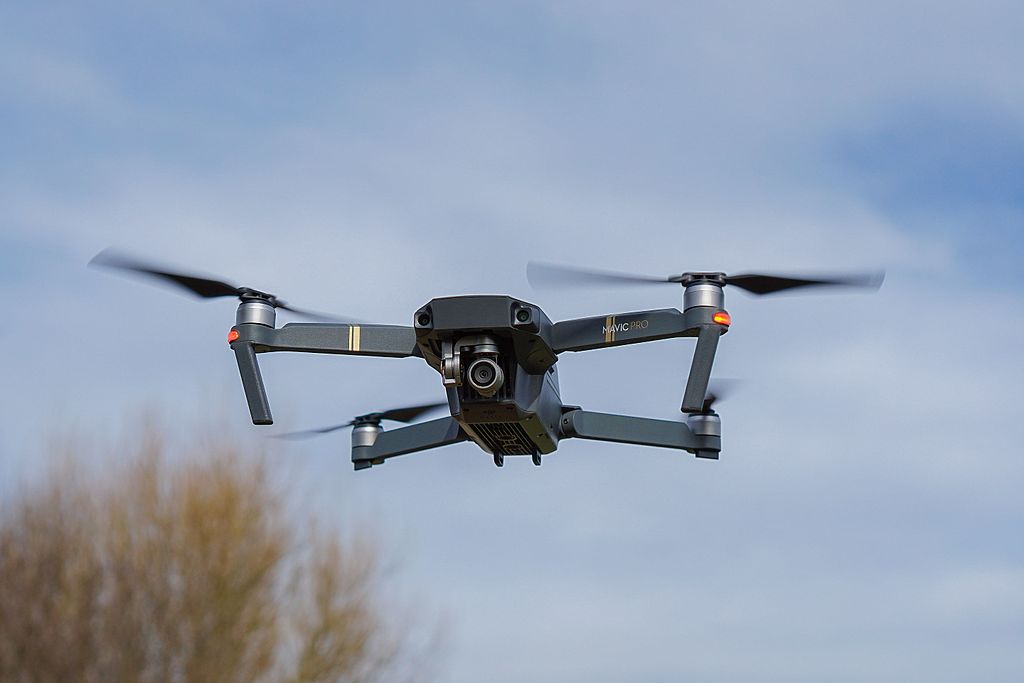Chinese drone market leader, DJI, has denied claims that the company is automatically collecting and transmitting customer data back to China, but will establish a US manufacturing base to ease security concerns.

US-China trade relations have become, well, tense. The US government recently issued a warning that Chinese tech companies, including drone manufacturers, may be collecting data and potentially sharing it with the Chinese government.
‘The United States government has strong concerns about any technology product that takes American data into the territory of an authoritarian state that permits its intelligence services to have unfettered access to that data or otherwise abuses that access,’ the US Department of Homeland Security (USDHS), said in an alert from May. ‘Those concerns apply with equal force to certain Chinese-made (unmanned aircraft systems)-connected devices capable of collecting and transferring potentially revealing data about their operations and the individuals and entities operating them, as China imposes unusually stringent obligations on its citizens to support national intelligence activities.’
While DJI is not mentioned, the USDHS warning is clearly referencing the consumer drone pioneer and market leader.
There is no hard evidence to suggest DJI is collecting user data, including flight and geospatial information, let alone handing it over to the People’s Republic Government. It’s all speculation. That being said, the Chinese Government works closely with businesses and can demand they hand over data, and doesn’t have the greatest track record with human rights or the right to privacy. These security concerns are the fundamental reason why Australia banned Chinese telecom manufacturers, such as Huawei and ZTE, from providing 5G equipment here.
China also hopes to dominate the ‘big data sector’, with the rise of Artificial Intelligence and what not, and doing this requires the collection of as much information as possible. So the suspicion isn’t farfetched that it is using Chinese global tech businesses to gather information.
Despite any clear evidence, some security and tech experts talking to a US Senate subcommittee on drone security believe DJI is guilty of dodgy dealings.
‘American geospatial information is flown to Chinese data centers at an unprecedented level. This literally gives a Chinese company a view from above of our nation. DJI says that American data is safe, but its use of proprietary software networks means how would we know?’ Harry Wingo, chair of the Cyber Security Department from the National Defense University, told the Subcommittee. ‘When you consider protecting a US city at that level, to hand that information over is concerning.’
Catherine Cahill, director at the Alaska Center for UAS Integration, believes ‘the data from DJI UAS was automatically being sent back to the manufacturer in China’.
And if that’s happening in the US, it’s no doubt the case in Australia too. Although it’ll take some work to sift through all the data recorded along the beautiful Australian coastline during golden hour, before finding anything of strategic interest.
DJI North American vice president and country manager, Mario Rebello, sent an 1800-word letter to the US subcommittee to deny DJI is spying on its customers.
‘As the Subcommittee knows, the security of a company’s products depends on the safeguards it employs, not where its headquarters is located,’ he writes.
‘DJI drones do not share flight logs, photos or videos unless the drone pilot deliberately chooses to do so. They do not automatically send flight data to China or anywhere else. They do not automatically transmit photos or videos over the internet. This data stays solely on the drone and on the pilot’s mobile device. DJI cannot share customer data it never receives.’
Rebello adds that DJI doesn’t sell or monetise customer data.
Rebello’s use of the word ‘automatically’ is interesting. China’s National Intelligence Law from 2017 forces local businesses to cooperate with state intelligence and hand over any requested information.
Rebello goes on to list the economic benefits DJI has provided Americans, and a number of security and safety measures implemented to address privacy concerns.
‘DJI’s professional pilot app has a built-in setting to disconnect all internet connection, as an extra precaution for pilots performing sensitive flights. Unlike some technology companies, DJI does not sell or monetize customer data.
DJI embeds password and data encryption features in the design of our products. This provides customers with secure access to the drone and its onboard data. In cases when U.S. drone users do choose to share their data, it is only uploaded to U.S. cloud servers ‘
DJI will, however, move some US production to a factory in California to stay in the good books, and not land on US trade blacklist.
The security warning may just be a US government tactic to fuel paranoia and distrust of China, as the country grapples with the inevitable rise of a foreign economic superpower. DJI has repeatedly maintained that customer data is safe.





Be First to Comment